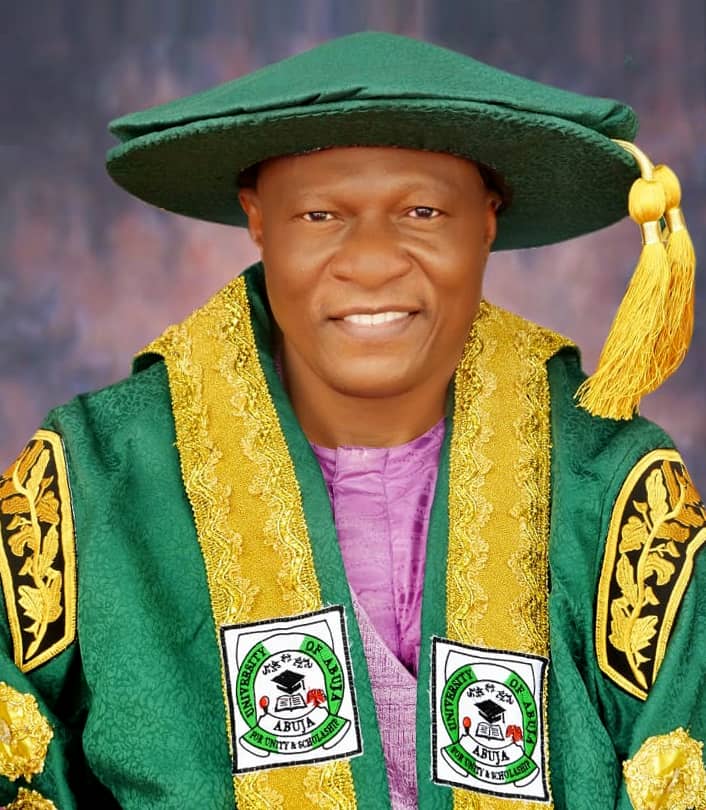By Dr Habib Yakoob
The first time I met him, he was sitting in his office, in his characteristic agbada and Damanga cap, attending to some of his staff.
Every vice-chancellor who has ever passed through this much coveted office at the Senate building of the University of Abuja has had their strengths, but Na’Allah’s perceptiveness and work ethics were striking.
Whenever the staff were about to meet him with a memo for approval or discuss a proposal with him, they worried about their own level of preparedness to defend its contents, not his ability to appreciate or understand any technicality in whatever they would be presenting.
“The man will engage you, asking all sorts of questions to see whether you really know what you are talking about and even suggesting how well you might do it,” one senior professor had told me several days before this meeting.
So, when it was time for me to see him, I inched forward in my seat. Na’Allah had heard a bit of something about me, I got to learn later: that having worked as a journalist for several years as well as being a public relations specialist, and earning a doctorate in media arts, I had enough experience and capacity to promote the University which face he was well prepared to change.
But he wouldn’t be satisfied with mere reports about an individual; he would need proof of preparedness and competence from the person whom he would want to work with in that important office. Generally, this intuitive search for competence defines his approach to many of the appointments he has made in the past five years. When I was eventually redeployed to head the office of the Information and University Relations, Na’Allah assailed me immediately with series of assignments.
Every week, there were tons of emails and WhatsApp messages, memos and texts sharing contents to me to work on (such a workaholic, many have said he hardly sleeps), and then waiting expectantly for results.
It was only after he got satisfied with my expertise in handling such an assignment that his trust in me began to build up. Since then, whatever he wanted done, as far as it related to media or communications in the University, he shared it with me, saying sometimes, “Well, you are the professional, let’s know what you think.”
Though Na’Allah loved the glitz and glitter of the media more than many chief executives I have ever known, and was ever ready to grant even impromptu interviews, he would never impulsively make a statement. And he would stand firmly by whatever statement he has made without wavering at all. So as someone who handled his media activities and that of the University, I never faced the embarrassment of having to denounce and retract statements made by my chief executive officer.
Indeed, understanding effective communication is important for every leader who desires to build healthy relationship with the publics, and Na’Allah demonstrated on many occasions that he was a master of such art.
He started this relationship by instituting a two-way communication process in the University, taking advantage of the advancement in Information and communication technology by setting up a central listserve that connected students, staff and the entire university community, so that while he regularly bombarded them with messages, he searched through their comments for advice, responding to their queries and generally engaging with them.
Disciplined and strongminded, almost to the point of recalcitrance, Nallah cuts the picture of a leader who knows what he wants, why and how he wants it. With such determination, and closely working with the management of the university, Council and Senate, he has been able to remarkably transform the institution, making it emerge as one of the leading institutions recognised in the country now for its cutting-edge research, infrastructural growth and rising visibility, having taken it up from where his predecessors have left it.
Despite the general strike embarked upon by the national chapter of the Academic Staff Union of Universities (ASUU) for several months, and the effect of the Covid 19 pandemic that has sliced off a sizeable part of his five-year tenure, Na’Allah has been able to expand the university’s academic landscape, establishing four mega faculties such as Faculty of Communication and Media Studies, the Faculty of Environmental Science, Faculty of Nursing and Allied Sciences, and Faculty of Pharmaceutical Sciences; and setting up many centres as vehicles for conveying developments to the University.
There is no doubt that the growth and advancement witnessed in the University these past years has been driven by his ingenuity and a collective commitment among the staff.
However, in the weeks leading up to his exit, the University was in the news for an internal strike by members of ASUU over the placement of advertorial in the papers for the position of the vice-chancellor, in the absence of the Governing Council and other sundry issues; while some staff approached the court, in their attempt to resist the election of new members into the Council which the Federal government had already dissolved for a year and recently reconstituted.
This crisis has not really undermined the relative industrial peace and harmony the University has enjoyed for a long time during Na’Allah’s tenure. It has simply underscored the relationship between the perseverance of a leader in accelerating the machinery of governance in the overall interest of the system and the exploitation of the freedom inherent in the academic community by its members to exercise their democratic rights. It was a kind of crisis typical of a society witnessing a powerful process of transformation.
In any case, it is clear from the one week-long valedictory activities by staff and students for the vice-chancellor that Na’Allah has touched their lives in a memorable manner and lifted the University to greater heights.
He will be handing over, after a five-year tenure as vice chancellor at the University of Abuja, today, 1st July 2024.
The immediate past deputy vice-chancellor, academic, Professor Aisha Sani Maikudi, will be taking over from him and carrying on with the management of the affairs of the institution in a temporary capacity. Given that she has worked closely with Na’Allah in the last couple of years, it is expected that she will continue his good works, and also bring her experience, fresh perspectives and renewed vigor into the workings of this office to further advance the university’s mission and uphold the high standards set by her mentor. Such sustained growth will no doubt put the University on the same pedestal as the other highly esteemed universities in the world.
Maikudi will, like Na’Allah, find the management, students and staff of the university willing and ready to support her new administration.
But as Na’Allah leaves the University of Abuja holding his head high, and thanking me for the professional support I have given his administration, I just couldn’t help recalling that day when I first met him in his agbada and damanga cap in his office, and asking, as the English poet, Robert Southey, did in her Ode Written On the First of January: Canst thou rejoice–rejoice that Time flies fast?
By Dr Habib Yakoob is the Acting Director, Information and University Relations, University of Abuja



